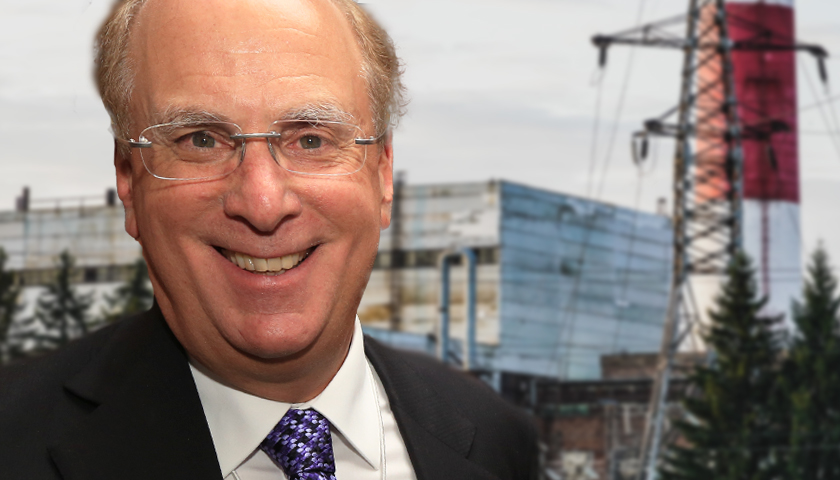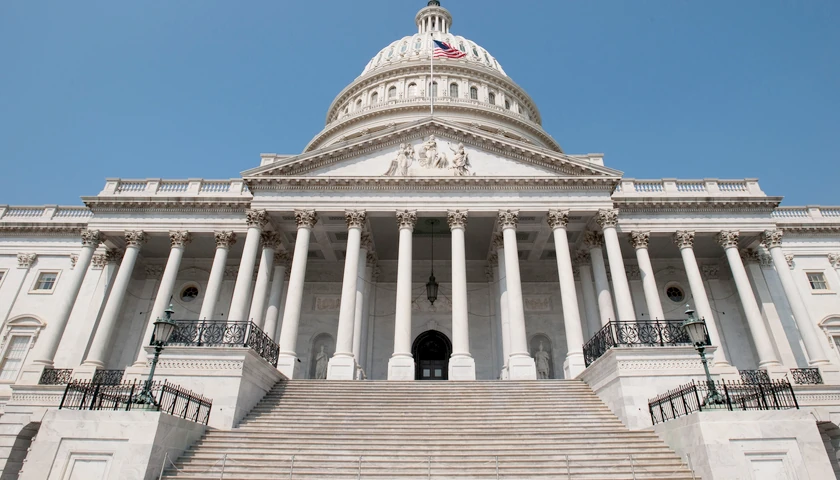by Robert Romano
BlackRock CEO Larry Fink warned Environmental, Social and Governance (ESG) investors in his $10 trillion hedge fund’s annual shareholder letter that Russia’s invasion of Ukraine — and the resulting Western sanctions on Russia — had disrupted globalization and interdependent supply chains and would result in “increasing oil and gas supply” in the U.S. and “coal consumption may increase over the next year” in Europe and Asia to offset the drop in Russian exports.
As a result, Fink projected, “This will inevitably slow the world’s progress toward net zero in the near term,” referring to ESG goals like net zero global carbon emissions by 2050 that would encounter challenges, particularly as American consumers pay much higher prices with consumer inflation up 7.9 percent and producer inflation up 10 percent the past twelve months.
Those price pressures will mean more oil and gas production immediately, Fink said.
But, that understates the matter as Fink ignored a critical element to the war. The high energy inflation will also mean the public begins to question and examine ESG’s investment model to pursue social and climate justice that Fink has pushed to investors.
Restricting coal and nuclear energy has fostered European dependence on Russia particularly for natural gas and oil that, when the world is at war, becomes critical to national survival and the ability to project strength abroad. That dependency weakened the West’s response via sanctions as countries like Germany refused to end energy trade with Russia.
And it’s hard not to point to ESG as in part creating this vulnerability as a potential threat to national security.
The federal government the past seven years has opened the door for left-wing ESG investing via private retirement funds regulated under the Employment Retirement Income Security Act (ERISA) via a regulation by the Obama Labor Department in 2015.
The Obama rule allowed pension plan managers to give additional weight to companies touting ESG goals that focus on green energy, cleaning up the environment, are anti-oil, anti-coal, anti-carbon, but also anti-tobacco, anti-guns, embracing critical race theory, implementing diversity and inclusion racial and gender hiring quotas and practices and other left-wing issues.
Under President Joe Biden the $762 billion federal Thrift Savings Plan (TSP) for federal employee retirees will be investing in ESG funds as well going into effect in 2022, following state government employee retirement funds in California, New York, Colorado, Connecticut, Maine, Maryland and Oregon that have made similar investments for years.
Now, thanks to the incentives and subsidies, ESG funds, which total $38 trillion out more than $100 trillion global assets under management, will grow to $53 trillion by 2025, according to Bloomberg News, all to push the Green New Deal.
And, in Fink’s eyes, as Europe moves away from dependency on Russian energy over the coming years, this will result in further “large-scale reorientation of supply chains [that] will inherently be inflationary.” And the higher prices would lead to even more green energy in the future: “Longer-term, I believe that recent events will actually accelerate the shift toward greener sources of energy in many parts of the world.” Why?
Particularly, the inflation of carbon-based energy would make green energy more price competitive and “meaningfully reduce the green premium for clean technologies and enable renewables, EVs and other clean technologies to be much more competitive economically,” Fink said.
In other words, a combination of the war, the sanctions and the longer lasting inflation they generate will further fuel ESG’s push for an all-green economy long term, the very green energy that caused the current supply crunch and energy security crisis in the first place — and seeded elements to the crisis in eastern Europe that made war more likely.
Hasn’t Wall Street learned its lesson?
It is this tension that must be addressed. Fink has underestimated the long term impacts that further restrictions on energy production and supplies are engendering: more projecting weakness, more global instability — and even higher prices. Fink thinks higher prices will make the world more green. Maybe he should be careful what he wishes for.
This could generate further public backlashes that makes pushes for greater carbon energy production more permanent.
– – –
Robert Romano is the Vice President of Public Policy at Americans for Limited Government Foundation.
Photo “Larry Fink” by Financial Times CC BY 2.0.






“Net Zero” is a scam of the highest proportions. Just follow the money trail to learn who and why it is being pushed.